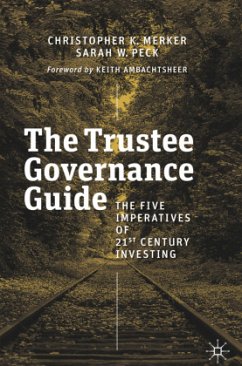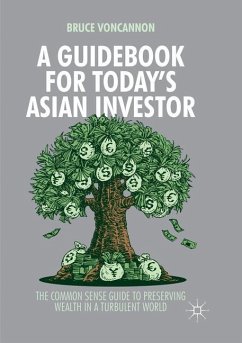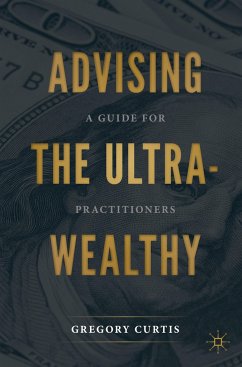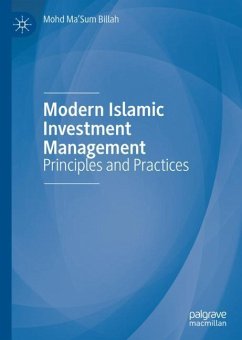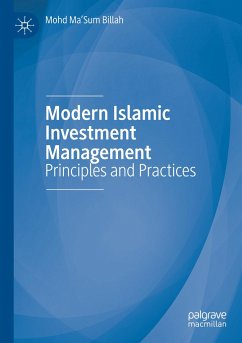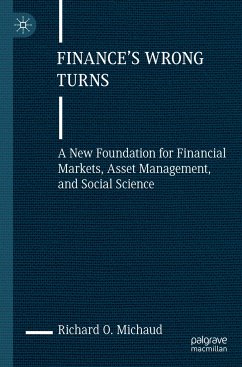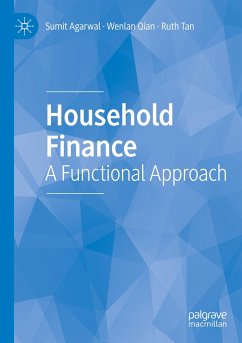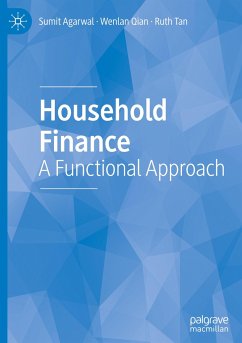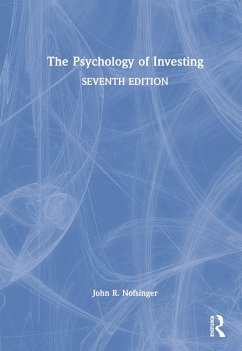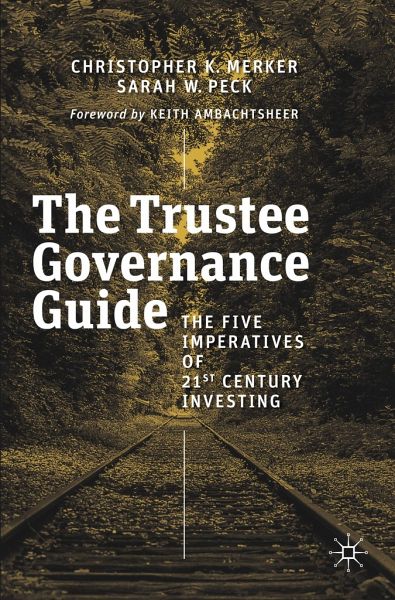
The Trustee Governance Guide
The Five Imperatives of 21st Century Investing
Versandkostenfrei!
Versandfertig in 6-10 Tagen
27,99 €
inkl. MwSt.
Weitere Ausgaben:

PAYBACK Punkte
14 °P sammeln!
More than 80% of the financial assets in the United States fall under the purview of a trustee. That's a big responsibility for an estimated 1% (around 1.5 million people) of the U.S. working population charged with overseeing investments for millions and millions of beneficiaries, public sector, and non-profit organizations. In a world proliferated by investment products, increasingly dominated by indexes, faced-particularly in the pension world-with increasing liabilities, more regulation, and a growing number of social and sustainability objectives, what's a trustee to do?The Trustee Govern...
More than 80% of the financial assets in the United States fall under the purview of a trustee. That's a big responsibility for an estimated 1% (around 1.5 million people) of the U.S. working population charged with overseeing investments for millions and millions of beneficiaries, public sector, and non-profit organizations. In a world proliferated by investment products, increasingly dominated by indexes, faced-particularly in the pension world-with increasing liabilities, more regulation, and a growing number of social and sustainability objectives, what's a trustee to do?
The Trustee Governance Guide is here to help guide today's board trustee through the brave new world of 21st century investing. The book focuses on the critical aspects of the Five Imperatives: Governance, Knowledge, Diversification, Discipline, and Impact.
Based on more than a decade of research, practice, and discussions with many key decision makers and influencers across the industry, this book addresses the many topics related to better governance, greater mission-driven financial performance, and impact. The questions the book addresses include:
· What is good governance, how do we know it when we see it, and why does it matter?
· How much knowledge is necessary to be a competent board member?
· How big should my endowment be?
· What are the key elements of a diversified portfolio?
· How much does cost matter?
· What's the difference between socially responsible and ESG investing?
· Can I focus on sustainability and still be a good fiduciary?
This book provides a way for boards to improve and benchmark their own governance performance alongside their peers, and uniquely covers related investment topics in each chapter.
The Trustee Governance Guide is here to help guide today's board trustee through the brave new world of 21st century investing. The book focuses on the critical aspects of the Five Imperatives: Governance, Knowledge, Diversification, Discipline, and Impact.
Based on more than a decade of research, practice, and discussions with many key decision makers and influencers across the industry, this book addresses the many topics related to better governance, greater mission-driven financial performance, and impact. The questions the book addresses include:
· What is good governance, how do we know it when we see it, and why does it matter?
· How much knowledge is necessary to be a competent board member?
· How big should my endowment be?
· What are the key elements of a diversified portfolio?
· How much does cost matter?
· What's the difference between socially responsible and ESG investing?
· Can I focus on sustainability and still be a good fiduciary?
This book provides a way for boards to improve and benchmark their own governance performance alongside their peers, and uniquely covers related investment topics in each chapter.





